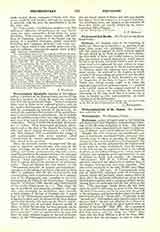

Protocol, the formula used at the beginning of public acts drawn up by notaries, e.g., mention of the reign, time, place, etc. (Justinian, “Novels”, 43); also, the compact register in which notaries register the acts drawn up by them, in order of date; finally, the first draft of these acts (called minutes, because they are written in small characters), which remain in care of the notary, and from which a copy or transcript (said to be engrossed, because written in larger characters) is made, and sent to the interested parties. In tribunals where the registrars have retained the name notary, the protocol is the register in which records of the proceedings are preserved and the office in which the originals of these documents are kept (cf. Regulation of the Rota, August 4, 1910, art. 2). Public acts, official records, ought to be either the originals (engrossed) or authentic copies, i.e., certified to be faithful copies of the original preserved in the protocol, the notary who transcribes the document witnessing on the copy itself that it is exact; this is what is known as fides instrumentorum, or trustworthiness of the documents.
A. BOUDINHON

